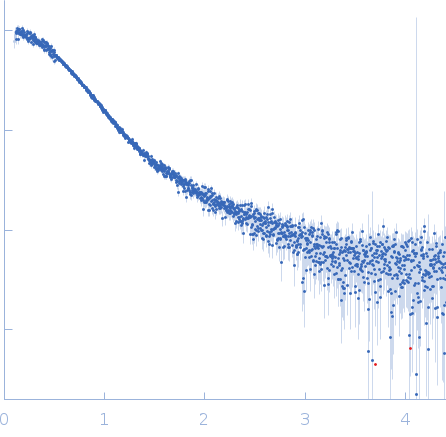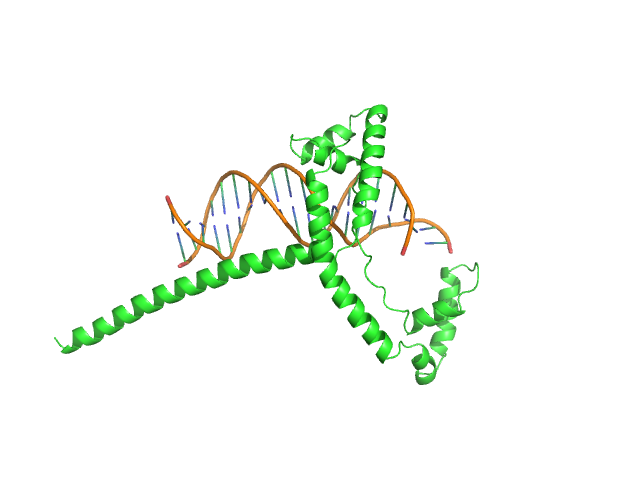|
Synchrotron SAXS data from solutions of truncated Gcf1p (amino acids 59-245) bound to DNA in 25 mM Tris, 20 mM NaCl, pH 8 were collected on the EMBL P12 beam line at PETRA III (DESY, Hamburg, Germany) using a Eiger 4M detector at a sample-detector distance of 3 m and at a wavelength of λ = 0.124 nm (I(s) vs s, where s = 4πsinθ/λ, and 2θ is the scattering angle). Solute concentrations ranging between 0.3 and 2 mg/ml were measured at 10°C. 40 successive 0.045 second frames were collected. The data were normalized to the intensity of the transmitted beam and radially averaged; the scattering of the solvent-blank was subtracted. The low angle data collected at lower concentration were merged with the highest concentration high angle data to yield the final composite scattering curve.
|
|
Af2_20 DNA
|
| Mol. type |
|
DNA |
| Olig. state |
|
Monomer |
| Mon. MW |
|
12.4 kDa |
| Sequence |
|
FASTA |
| |
|
Gcf1p(Δ58)
|
| Mol. type |
|
Protein |
| Organism |
|
Candida albicans (strain SC5314 / ATCC MYA-2876) |
| Olig. state |
|
Monomer |
| Mon. MW |
|
22.5 kDa |
| |
| UniProt |
|
Q59QB8
(59-245)
|
| Sequence |
|
FASTA |
| |
|
 s, nm-1
s, nm-1
